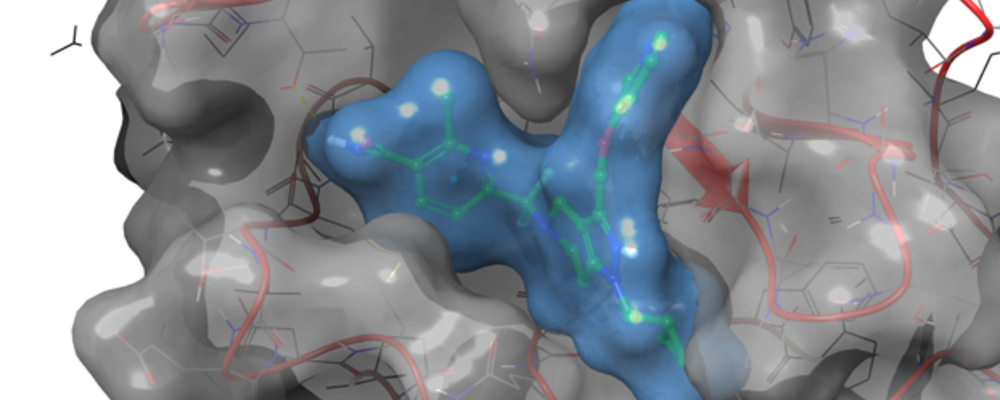Many drugs we use are designed to inhibit, that is, block, a function of a certain protein in the cell. It is important to find exactly the right molecule that fits in the protein's so-called active site. It requires many, time-consuming tests of a large number of molecules before the researchers find the optimal molecule, which must also meet all the other requirements placed on a drug.
During the last 3 years, Leif Eriksson's research group at the Department of Chemistry and Molecular Biology at the University of Gothenburg has worked on developing new AI-based tools that can replace these tests. Now they have developed an AI software that does the job in much less time and with great accuracy.
Quicker search for substances
“We have trained our AI model in a completely new way to be able to understand what a molecule should look like in order to fit into the protein. Through our new algorithms, we can search for new substances in a fraction of the time required in traditional drug development. Our predictions are the most accurate ever measured in all types of tests performed, and we can easily generate completely new "chemically relevant" molecules or build on predetermined basic structures,” says Leif Eriksson, professor of physical chemistry.
The AI tool is called i-TripleD and for the software the researchers have also developed a so-called ADMET module that effectively determines the physiochemical properties and safety profiles of the medicinal substances, making it possible to filter out at an early stage the substances that will not make it all the way to the clinic, thereby saving enormous resources.
“We have trained AI to see what properties the molecule has such as toxicity, stability, possible side effects and whether it can be taken up by the body and reach the cells,” says Leif Eriksson.
An example of the time gains that the AI tool can provide is when the researchers wanted to find new inhibitors of a protein in the coronavirus, SARS-CoV-2. The researchers had i-TripleD screen through a database of over 1 billion chemical compounds. It took about 36 hours for the AI tool to pick the most suitable compounds from the database. If the same work were to be done with current drug discovery programs, it would have taken 5 months.
This scientific achievement is now going out on the commercial market, and the innovation has thus been noticed by the Royal Academy of Engineering Sciences (IVA) which included the AI tool in its annual top 100 list.
Iranian researcher with new ideas
“This is obviously enormously encouraging. We have now applied for a patent for the AI tool and are working together with Chalmers School of Entrepreneurship and Chalmers Ventures to see if it can be commercialized through the formation of the spin-off company ANYO Labs. It took about a year and a half to develop the software and a lot is thanks to an Iranian researcher in my group, Jalil Mahdizadeh, who is leading the work. He joined in 2019 and came from a slightly different scientific field, with no connection to drug development. This allows him to tackle problems from a new angle,” says Leif Eriksson.
IVA's annual 100 list shines a light on current research with the potential to create benefit through commercialization, business and method development or societal impact. In addition to Leif Eriksson's research project, two more projects from Gothenburg University made the list.
- Leif Holmlid's research project on fusion power - "Energy generation without waste and greenhouse gases"
- Alexandre Friemann Dmitriev's project on a new optical marking of materials to be recycled - "Optical ultrasensors to help to recycle various materials, from e-waste to paper"
More about this project.
